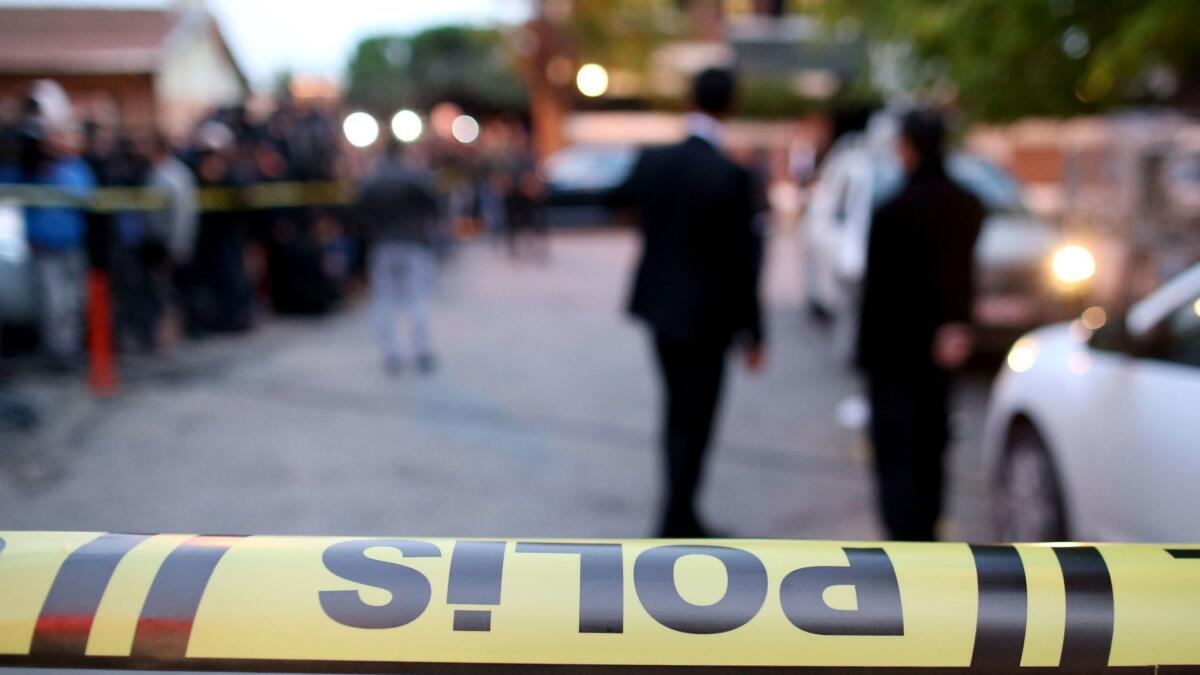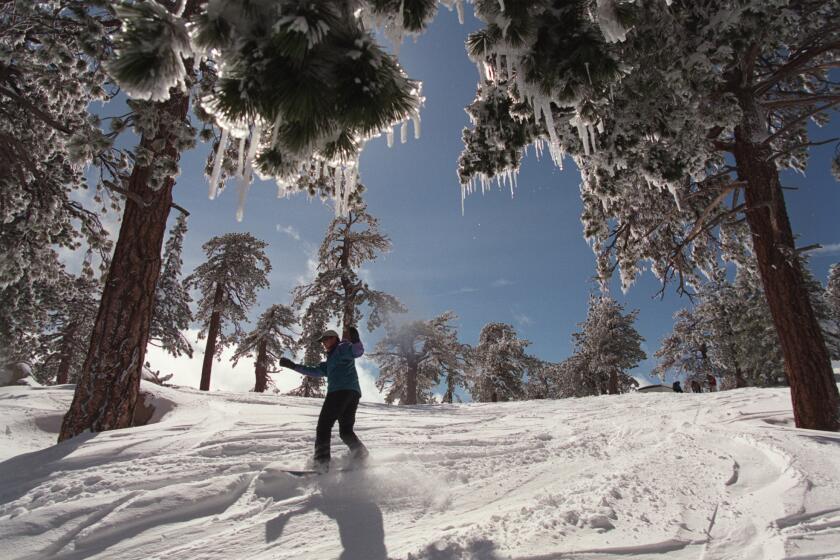Column: Something is desperately wrong when America is accused of covering up the killing of a dissident

On Thursday, the twice-poisoned Russian dissident Vladimir Kara-Murza looked in fine health as he accepted the Train Foundation Prize for Civil Courage in New York. The award honors “steadfast resistance to evil at great personal risk.”
Kara-Murza, a 37-year-old journalist and filmmaker, admitted he’d been physically weakened by attempts on his life in 2015 and 2017. He’s well aware that dissent can also be fatal. After all, in 2015, just before Kara-Murza was poisoned the first time, his mentor and fellow foe of Vladimir Putin, Boris Nemtsov, was shot and killed on a bridge just outside the Kremlin.
Great personal risk, indeed.
The Civil Courage Prize was inspired by another Russian dissident: Alexander Solzhenitsyn.
Like Kara-Murza and Nemtsov, Solzhenitsyn, a novelist and historian, criticized the Russian — then Soviet — government. In 1945, he was condemned to eight years in a work camp for poking fun at Stalin in a personal letter.
In 1971, after his release, and after decades of censorship, the KGB tried to assassinate Solzhenitsyn. Finally he left the Soviet Union for Vermont, not far from where I grew up.
What happened to Khashoggi, as we understand it, may outdo even the Kremlin for sadism.
Nearby families were proud that the world’s most famous enemy of the Kremlin had found asylum in our woods. We fiercely guarded his privacy. A sign outside the general store in Cavendish was meant to deter both KGB and literary fanboys: “No Restrooms, No Bare Feet, No Directions to the Solzhenitsyn Home.” My parents, hardly radicals, kept Solzhenitsyn’s immensely moving book, “The Gulag Archipelago,” on their front table.
When the collected works of Saudi dissident Jamal Khashoggi are published, I hope my parents and other patriotic Americans will buy those books too.
Khashoggi, like Nemtsov, was evidently killed in cold blood by a distinctly un-American government willing to desecrate the canon of human rights to shore up a fragile tyranny.
The story of what happened to Khashoggi on Oct. 2 at the Saudi Consulate in Istanbul is still in flux: On Friday, the Saudi leadership arrested 18 men who were said to have “argued” with the journalist in Istanbul, and then engaged in “a fistfight that led to his death.”
The Turks see it differently. They say that photos and travel records implicate 15 people. The New York Times reported that they included four associates of Saudi Crown Prince Mohammed bin Salman — M.B.S. — who flew to Istanbul the day of the murder. U.S. intelligence intercepts, according to the Washington Post, picked up the crown prince as he earlier discussed his plans for Khashoggi: Draw him back to Saudi Arabia and confront him there.
The Turks also claim to have recordings documenting the torturous severing of Khashoggi’s fingers, as well as his dismemberment and beheading. According to Turkish officials, a Saudi doctor can be heard offering a pro tip: To “ease tension” while butchering a human being, he says, try music.
What happened to Khashoggi, as we understand it, may outdo even the Kremlin for sadism. And yet the response in the U.S.— especially among Republicans — has been in stark contrast to the response to Solzhenitsyn’s abuse by the Soviets in the 20th century.
Today the Trump administration stands accused of helping to cover up the full story of Khashoggi’s death and even of having foreknowledge that Khashoggi was some sort of target in Istanbul. At the same time, the Republican Party is evidently smearing Khashoggi while aiming to exonerate the Saudis, with whom the oligarchs of our nation, including the president and his son-in-law, have an unholy commercial alliance.
Something has gone gravely wrong in America.
In the 1970s, Americans of every stripe considered Alexander Solzhenitsyn a hero. To fight repression in a brutal, totalitarian regime like the USSR was to gain the admiration and material support of the West, where individual freedoms are the sine qua non of our way of life.
Now Trump almost seems to consider violence toward a member of the media by an authoritarian regime something he can get behind. At a rally Thursday night, the same night Kara-Murza accepted his Civil Courage Prize, Trump praised a Montana politician for body-slamming a reporter.
Enter the Fray: First takes on the news of the minute from L.A. Times Opinion »
But things are more ominous still. It seems Khashoggi’s writing was banned in Saudi Arabia not because he was critical of Mohammad bin Salman or the government. It was because, two days after the presidential election in 2016, Khashoggi mildly criticized — Donald Trump.
We can only hope that one day a journalist or congressional committee will get a full accounting of the Trump circle’s contacts with Saudi leadership about Khashoggi. But it seems that Khashoggi, like the rest of the non-state media, indeed counted as an enemy of the people, where “people” means a dozen violent oligarchs who seem bent on “winning” fake elections, exterminating journalists and putting the world on fascist lockdown.
On Thursday I asked Vladimir Kara-Murza if he considered Trump as Putin-in-training, and what he thought we could expect if Trump is shown to be complicit in a Saudi cover-up, or worse.
Kara-Murza, usually voluble, refused to answer. Then he smiled. He said he would focus on his country, and I should focus on mine.
“You have so many Russians meddling in your politics already,” he said by way of conclusion. “You don’t need another one.”
Twitter: @page88
Follow the Opinion section on Twitter @latimesopinionand Facebook
More to Read
A cure for the common opinion
Get thought-provoking perspectives with our weekly newsletter.
You may occasionally receive promotional content from the Los Angeles Times.






